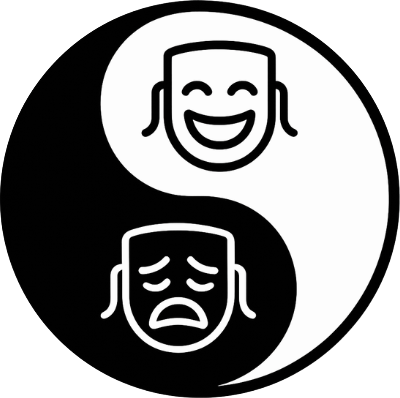Enduring Boredom: The Secret of Success
If you were told that the secret to success was the ability to endure boredom, how would you respond?
However you answered, you now have the opportunity to try your response on for size. It turns out this statement has some pretty compelling evidence behind it.
Backed by science; built for the stage and screen.
👊 Actors:
Get evidence-informed insights and strategies to support your performance and well-being. Join the Dojo e-newsletter tribe and make thriving your reality.
🧭 Drama schools & Production companies:
Bring pioneering, research-backed coaching into your classroom or rehearsal room. Let’s talk about supporting your actors to perform at their peak – and stay well in the process.
Hear it from the King
"Amateurs sit and wait for inspiration, the rest of us just get up and go to work." ~ Stephen King
There's an unexpected piece of literature that has become famous for capturing this idea.
In 1940, Albert E. N. Gray gave a speech to life insurance professionals at a convention in Philadelphia. This address turned out to be so wildly successful it was turned into the now renowned six-page pamphlet, The Common Denominator of Success, and distributed far and wide.
In Gray's words:
Like most of us, I had been brought up on the popular belief that the secret of success is hard work, but I had seen so many men work hard without succeeding and so many men succeed without working hard that I had become convinced that hard work was not the real secret even though in most cases it might be one of the requirements.
A phenomenon many of us encounter on the actor's path.
He then goes on to deliver the punchline:
The common denominator of success – the secret of success of every man who has ever been successful – lies in the fact that he formed the habit of doing things that failures don't like to do.
Yes, success requires talent. Success requires luck. But at some point, what separates the 1% from the 99% is the willingness to keep going when the going gets boring.
What this means in Actor Land
Just so we're crystal, we aren't advocating unhealthy workaholism (been there 👋) or obsessive actor busy work (also been there). In fact, this idea inherently opposes both:
- To counter unhealthy workaholism, we focus on challenging our personal baseline for boredom tolerance. We measure ourselves against our limits, not the limits of some real or imagined hard-hustler around us.
- To counter obsessive actor busy work, we apply this only to our current (and singular) goal. No misguided attempts to do all the things superbly at once. We set out to surmount our lack of motivation in only one endeavour.
Sound gravy?
Fortunately, the secret of success in action boils down to a super straightforward three-step tango. It's the consistently-pushing-past-our-boredom-barrier part that's the challenge. But y'all didn't come to the Dojo to achieve average now, did you?
Let's dance:
- If we haven't already, we need to define our goal for this season of our career. Again, uno goal. Uno. Don't worry, we can pick a new one next season. One domino at a time.
- We then craft (or adjust) our Training Menu in service of our singular goal.
- Finally, we commence training and commit to falling in love with boredom, remembering every repetition is an opportunity to inch towards uncommon success.

How did yo' response go?
We actually find Gray's secret to success super reassuring. After all, it highlights that everyone – even the best of the best – gets bored at times. The 1% aren't some rare breed of Eveready Batteries. They're simply ninjas like us who've learnt to endure boredom.
Love what you’re reading? Help us keep it flowing. Donations support the research, writing, and free sharing of evidence-informed tools for actor performance and well-being. Every dollar fuels our mission to make thriving a reality for actors everywhere 🔥
